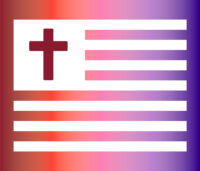Who
The Peace and Justice wing of evangelicalism is a loose network of evangelical pastors, non-profit leaders, professors and activists. They are a small but growing minority in the larger evangelical world. While the “old guard” leaders tend to be white and male, younger leaders (in their 30s-60s) are more diverse.
What
The key political issues they seek to address are poverty, racial justice, gender equality, immigration reform, criminal justice reform, war and militarism and “creation care” (i.e. environmental protection). Some are beginning to move toward LGBTQ equality, but are treading carefully because of resistance inside their institutions. Most are pro-life on the issue of abortion, but less focused on making abortion illegal than other evangelical Christians. Few are active in this area, but those who are try to seek common ground with pro-choice folks to work on ways to reduce the number of abortions.
When
Peace and Justice evangelicals can trace their origins to the late 1960s publication titled The Other Side (originally Freedom Now), which represented a freshly emerging evangelical social conscience forming around issues of racial justice. Following close behind, and in some ways inspired by The Other Side, was the Sojourners community, and Sojourners Magazine, which is still active today. In 1973, a group of evangelical college professors wrote The Chicago Declaration of Social Concern, that ultimately formed the basis from which Evangelicals for Social Action was launched as a national organization in 1978. Also important was the publication of Ron Sider’s Rich Christians in an Age of Hunger, originally published in 1977, which has been regularly assigned as required reading in evangelical colleges and seminaries for decades.
Why
This group tends to adhere to Anabaptist or Wesleyan theology rather than Calvinism or Dispensationalism. They see themselves as the inheritors of the Tolstoy/Gandhi/King/Chavez tradition of nonviolent resistance, and many are pacifist and deeply suspicious of nationalist impulses in American government, which they often analogize with the Roman Empire in the Bible. Many are also suspicious of or opposed to capitalism as an economic system. Peace and Justice evangelicals are thus sometimes to the left of both the Democratic and Republican parties on many issues because political power is seen to rest upon violence.
Where
Many Peace and Justice Evangelicals reside within evangelical institutions but are nonetheless in tension with them because of their political beliefs. They tend to have less influence than conservatives in those institutions and thus operate as a network outside traditional institutional structures.
The network that Peace and Justice evangelicals use to get their message across includes the following organizations:
- Sojourners magazine
- Small-scale non-profits (Matthew25, Evangelicals for Social Action, The Justice Conference, Christian Peacemaker Teams, Red Letter Christians). Many are affiliated with the Christian Community Development Association (CCDA)
- Evangelical colleges and some seminaries. Calvin College, Goshen College, Messiah College, Bethel University, Eastern University and North Park University are notable hotbeds, although most evangelical colleges have some faculty that are peace and justice evangelicals, particularly in the humanities and social sciences
- Some evangelical denominations (Evangelical Covenant Church, Free Methodist Church, American Baptist) are friendlier to these leaders and have pastors who are openly pursuing a peace and justice agenda, but most pastors in these denominations are not
- Intervarsity Christian Fellowship, a college campus ministry that allows space for peace and justice leaders and activities, although not every leader or chapter is committed
- African-American congregations and denominations. Although most African-American congregations and denominations (AME, COGIC, Missionary Baptist) wouldn’t call themselves “evangelical,” most have evangelical theological beliefs, and many are involved in peace and justice work. Some African-American pastors (like William Barber, Cecil Murray, Mark Whitlock, Najuma Smith-Pollard) serve as inspiration for peace and justice evangelicals and have formed partnerships with them on particular projects (like William Barbers’ Poor People’s Campaign)
How
Their key strategies are to seek “bottom-up” change through grassroots mobilization and protest. They seek legislative influence but from outside the system—few if any seek political office—although some have connections with influential Democratic politicians. Although they resist aligning with political parties, which is seen as corrupting to their faith, the Democratic party is seen as preferable, but part of the same nationalist/capitalist/militarist enterprise as the Republicans. A popular bumper sticker states: “God is not a Republican…or a Democrat.”
Notable Figures
Updated in 2024
- Soong-Chan Rah, Fuller Theological Seminary
- Alexia Salvatierra, Fuller Theological Seminary
- Robert Chao Romero, Chicano Studies professor at UCLA
- Lisa Sharon Harper
- Shane Claiborne
Read More
Evangelicals versus Oil: Environmental Justice in South Los Angeles
A Saintly Start-Up: Why Some New Churches Avoid a Corporate Model


